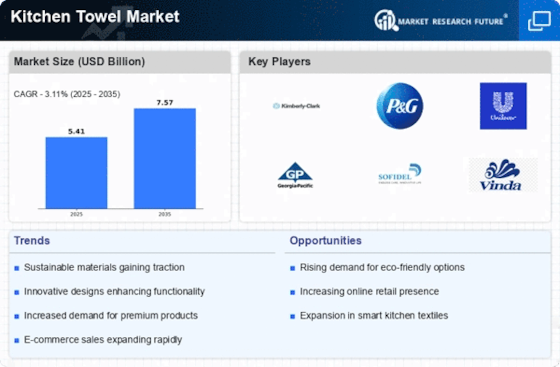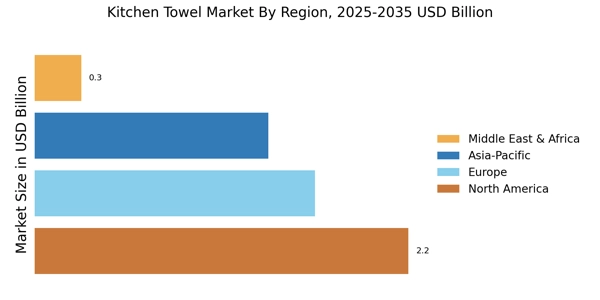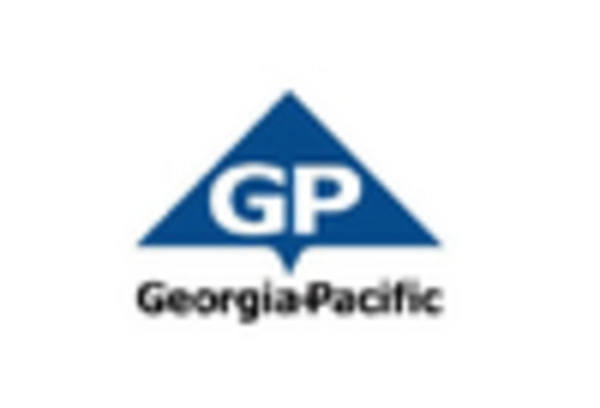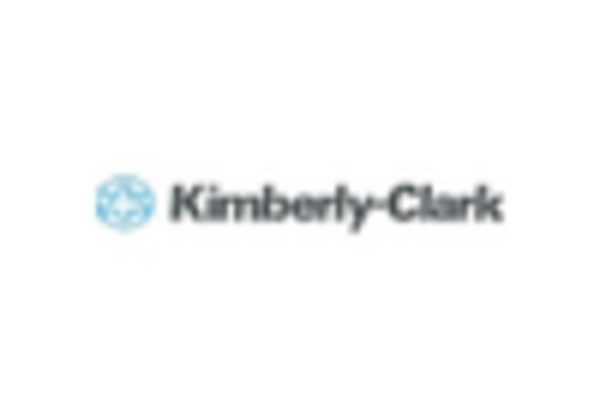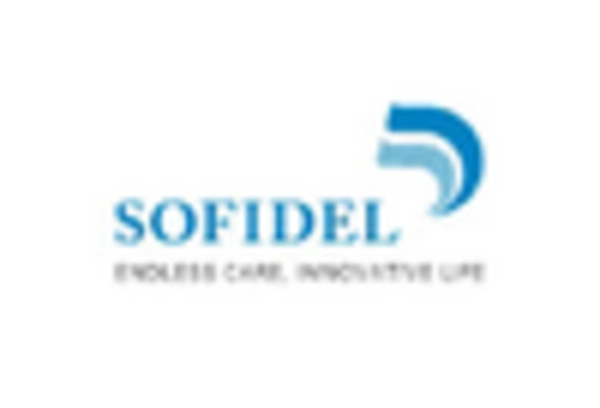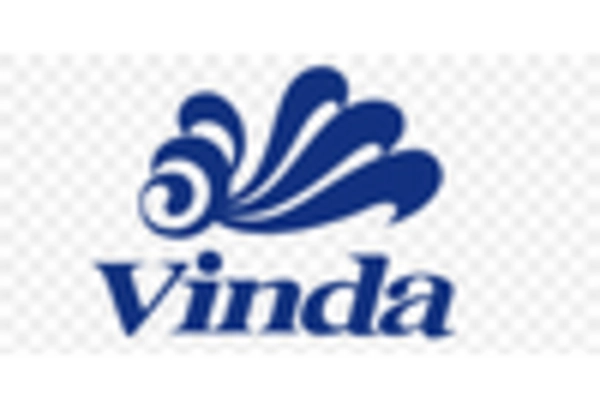North America : Market Leader in Consumption
North America is the largest market for kitchen towels, accounting for approximately 40% of the global share. The growth is driven by increasing consumer demand for convenience and hygiene, alongside a rising trend in home cooking. Regulatory support for sustainable products is also a catalyst, encouraging manufacturers to innovate. The U.S. and Canada are the primary contributors, with the U.S. holding a significant portion of the market share. The competitive landscape in North America is robust, featuring key players like Kimberly-Clark, Procter & Gamble, and Georgia-Pacific. These companies leverage advanced manufacturing technologies and sustainable practices to meet consumer preferences. The market is characterized by a variety of product offerings, including eco-friendly options, which are gaining traction among environmentally conscious consumers. The presence of established brands ensures a competitive environment, driving continuous innovation.
Europe : Sustainable Innovation Hub
Europe is witnessing significant growth in the kitchen towel market, holding approximately 30% of the global share. The demand is primarily driven by increasing consumer awareness regarding sustainability and hygiene. Regulatory frameworks, such as the EU's Green Deal, are pushing manufacturers towards eco-friendly production methods. Countries like Germany and the UK are leading this trend, with Germany being the largest market in the region, followed closely by the UK. The competitive landscape in Europe is marked by the presence of key players like Unilever and Sofidel, who are focusing on sustainable product lines. The market is characterized by a shift towards biodegradable and recyclable materials, aligning with consumer preferences for environmentally friendly products. Additionally, local brands are emerging, enhancing competition and offering diverse options to consumers, further stimulating market growth.
Asia-Pacific : Emerging Market Potential
Asia-Pacific is rapidly emerging as a significant player in the kitchen towel market, accounting for about 25% of the global share. The growth is fueled by rising disposable incomes, urbanization, and changing consumer lifestyles that prioritize convenience. Countries like China and India are at the forefront, with China being the largest market in the region, driven by a growing middle class and increased spending on household products. The competitive landscape in Asia-Pacific is diverse, with both international and local players vying for market share. Companies like Vinda International and Essity are expanding their presence, focusing on product innovation and affordability. The market is also witnessing a trend towards premium products, as consumers become more quality-conscious. This dynamic environment is fostering competition and encouraging brands to enhance their offerings to meet evolving consumer needs.
Middle East and Africa : Untapped Market Opportunities
The Middle East and Africa region is gradually emerging in the kitchen towel market, holding approximately 5% of the global share. The growth is driven by increasing urbanization, a growing population, and rising disposable incomes. Countries like South Africa and the UAE are leading the market, with South Africa being the largest contributor in the region, driven by a shift towards modern retail and consumer goods. The competitive landscape is still developing, with both local and international brands entering the market. Key players like Cascades and Metsa Group are focusing on expanding their distribution networks and product offerings. The market is characterized by a growing demand for quality and convenience, prompting brands to innovate and cater to the unique preferences of consumers in this diverse region. As awareness of hygiene products increases, the kitchen towel market is expected to see substantial growth in the coming years.


